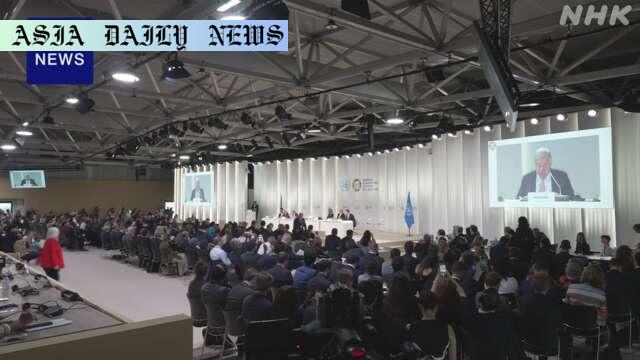Marine conservation takes center stage as global leaders gather to address critical ocean-related challenges in France.
- Delegates from about 120 countries converge in France for the UN Ocean Conference to address ocean-related sustainability.
- Hot topics include global warming, plastic pollution, deep-sea mining, and sustainable marine resource use.
- A consensus-driven declaration is expected at the end of the week-long event.
- The conference aims to foster unity and address U.S. policies under the Trump administration like seabed mining.

Introduction: The Urgent Need for Marine Conservation
The world’s oceans are a vital part of our planet, encompassing 70% of the Earth’s surface and regulating climate, sustaining marine biodiversity, and supporting human livelihoods through various industries. The increasing threats from climate change, overfishing, and marine pollution have necessitated international collaboration to protect and sustain oceanic ecosystems. The urgency to tackle these issues was particularly highlighted at the UN Ocean Conference that recently convened in Nice, France. Leaders from over 120 countries and regions gathered to share strategies, concerns, and solutions to better preserve the marine world.
Addressing Key Issues: Plastic Pollution and Global Warming
Among the focal points of the conference were critical topics such as the rising sea temperatures caused by global warming and pollution from plastic waste. With global temperatures reaching alarming levels, ocean ecosystems face severe consequences such as coral bleaching, habitat destruction, and adverse effects on marine life. In parallel, plastic pollution continues to choke the oceans, with over 8 million tons of plastic waste entering seas every year, threatening both wildlife and human food supplies.
Deep-Sea Mining and Its Controversy
Deep-sea mining was another contentious issue discussed at the conference. The United States, under the Trump administration, unveiled plans to exploit seabed mineral resources outside its exclusive economic zone. This move was met with opposition from numerous countries, including France and Costa Rica, concerned about the potentially devastating environmental impact on deep-sea ecosystems. French President Emmanuel Macron firmly emphasized that the ocean should remain a shared global resource, not a commodity sold for short-term profits.
Unity and Global Action: The Path Forward
UN Secretary-General Antonio Guterres emphasized the importance of unity among nations, stating, “The ocean is the ultimate shared resource, but we are failing it.” The conference was a powerful reminder that addressing environmental challenges requires global solidarity and cooperative action. The resulting declaration, expected on the event’s concluding day, aims to propose concrete measures and commitments from all participating nations to reverse the tides of ocean degradation.
Conclusion: Charting a Sustainable Future
The UN Ocean Conference marks a pivotal moment for global marine conservation efforts. It underscores the interconnectedness of oceanic health and global well-being and the need for urgent and unified action. Whether through addressing climate change impacts, reducing plastic waste, or imposing moratoriums on harmful practices like deep-sea mining, the conference serves as a reminder that the future of oceans—and humanity—depends on how we act today.



Commentary
Recognizing the Interdependence of Oceans and Humanity
The ocean is far more than a natural treasure; it is the lifeblood of our planet. It governs weather patterns, provides sustenance, and supports the livelihoods of billions. Recognizing this intricate interconnection between humanity and the oceans is essential as global leaders confront the daunting challenges posed by climate change, pollution, and resource exploitation. The UN Ocean Conference serves as a powerful platform to spotlight these critical issues.
The Controversy Surrounding Deep-Sea Mining
The debate over deep-sea mining reveals the complexity of balancing resource demands with environmental conservation. While seabed mineral extraction holds economic potential, it comes at a steep cost to marine ecosystems that are still poorly understood. Collaboration between nations, particularly industrial powers like the U.S., and environmentally conscious countries like France and Costa Rica, is essential for sustainable decision-making that prioritizes long-term ecological health over short-term gains.
A Call for Unity and Responsibility
The emphasis on unity by UN Secretary-General Antonio Guterres is particularly striking. The challenges linked to marine conservation transcend borders, making international cooperation not just ideal but necessary. Moving forward, nations must adopt policies to combat pollution, regulate industries affecting ocean health, and invest in renewable energy sources to mitigate the impacts of climate change on this shared global resource.
Final Thoughts
The UN Ocean Conference reinforces a critical narrative: that sustainable oceans are vital for the survival of life on Earth. The discussions and actions resulting from such gatherings carry significant weight in shaping a better, healthier, and more sustainable planet.